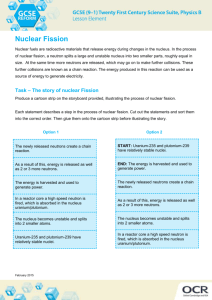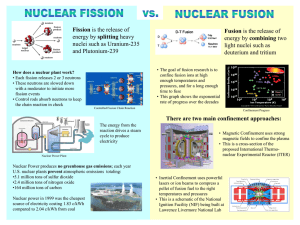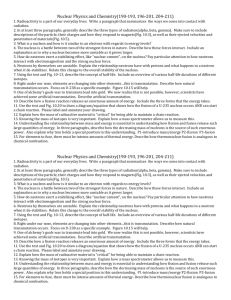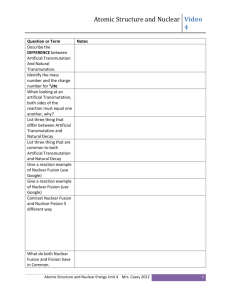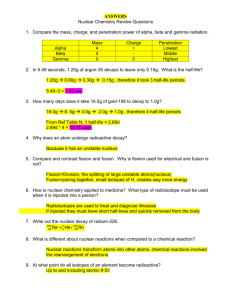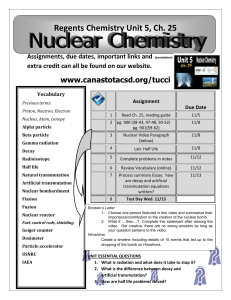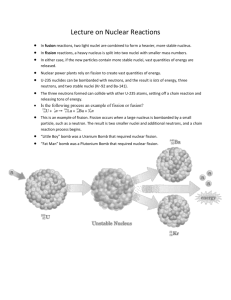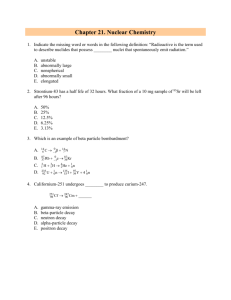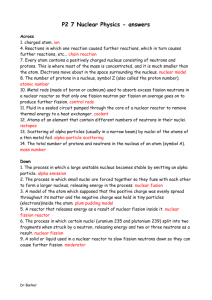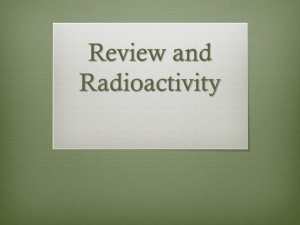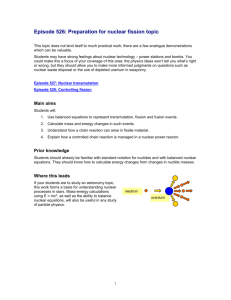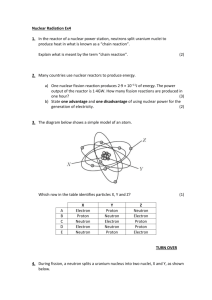Transmutation, nuclear reactors, fission v. fusion
advertisement
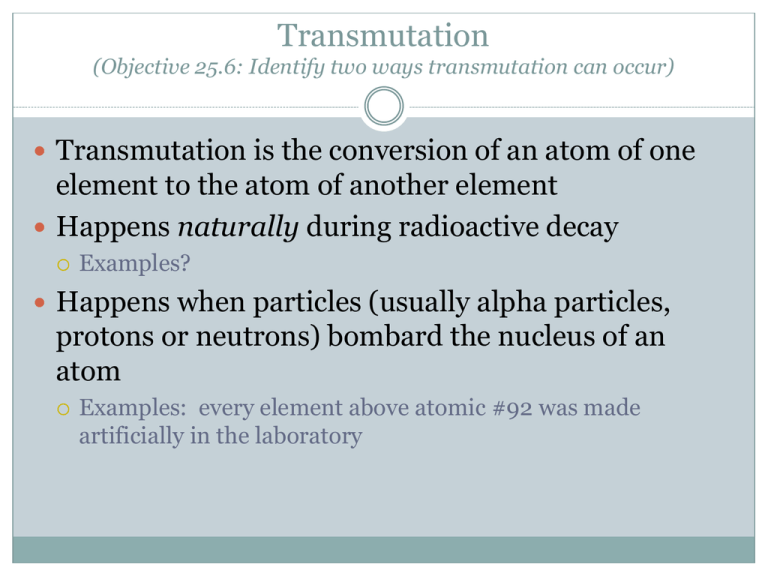
Transmutation (Objective 25.6: Identify two ways transmutation can occur) Transmutation is the conversion of an atom of one element to the atom of another element Happens naturally during radioactive decay Examples? Happens when particles (usually alpha particles, protons or neutrons) bombard the nucleus of an atom Examples: every element above atomic #92 was made artificially in the laboratory Man-made elements Example: creating plutonium-239 from uranium- 238 Practicing Transmutation Write an equation for the transmutation of protactinium-232 by bombardment with a neutron. One of the 2 products is a beta particle. Write an equation for the transmutation of beryllium-9 with an alpha particle. One of the two products is a neutron. Fission v. Fusion Objective 25.9: Distinguish fission reactions from fusion reactions. Fission- splitting of nucleus into smaller fragments Only two isotopes that are fissionable: uranium-235 and plutonium-239 Releases a lot of energy Also releases neutrons– creates a chain reaction- these neutrons react with other fissionable nuclei which release more neutrons….. Uses of Fission: Nuclear Power Plant Objective25.8: Explain how a nuclear power plant works. Uses of Fission: Nuclear Power Plant Objective25.8: Explain how a nuclear power plant works. Nuclear energy heat energy mechanical energy electrical energy Neutron moderators used to increase energy release by slowing down neutrons so that they actually cause fission Rods of carbon or water Neutron absorbers Used to decrease energy release by decreasing the number of moving neutrons Rods of cadmium Nuclear Waste Fusion Fusion- when nuclei combine to produce a nucleus of greater mass Example
